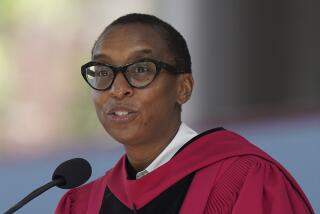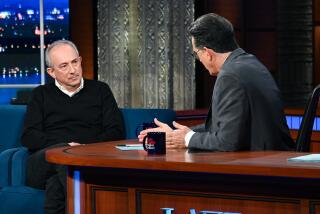Not ‘Slow’ in Discussing King, Just Thorough
- Share via
In discussing the discovery of plagiarized passages in the writings of Martin Luther King Jr., Anne C. Roark’s article “Merely Mortal?” (March 7) inaccurately implied that I “had been slow to discuss the matter publicly because of divided loyalties: allegiance to a subject he greatly admired and service to his discipline.”
As was made clear in an earlier article in The Times (“The Paper Chase,” Dec. 11, 1990), the project’s discovery involved many months of painstaking research to discover whether King’s plagiarisms were isolated instances or part of a pattern in his writings.
Five months before the press became aware of the plagiarism story, I had submitted an article on the subject for publication in the Journal of American History. The article will appear in June. I chose this manner of disclosing the project’s findings because of a strong belief that scholarly research should be done thoroughly and that the results, particularly if controversial, should be published only after careful review by other scholars.
This process is at times frustratingly slow, but, after more than three decades of not knowing about King’s plagiarisms, what is the rush? The issue was never whether but how we would disclose our findings. I do have a great admiration for King, but I express that admiration by studying him as a person with human flaws who nevertheless accomplished remarkable things.
CLAYBORNE CARSON
Director and Senior Editor
The Martin Luther King, Jr. Papers Project
Stanford University
Stanford
More to Read
Sign up for Essential California
The most important California stories and recommendations in your inbox every morning.
You may occasionally receive promotional content from the Los Angeles Times.










